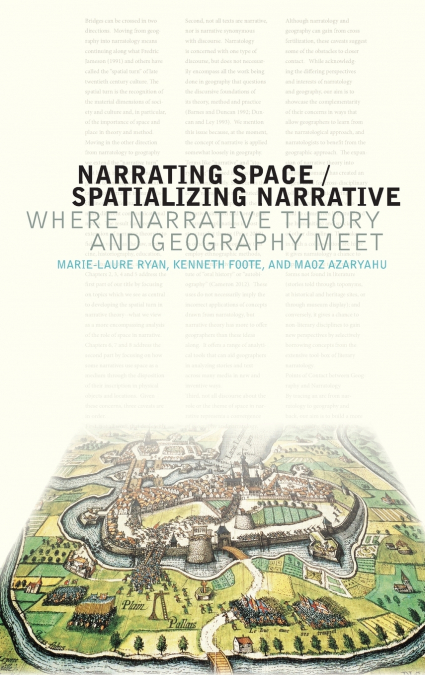
 Librería Perelló (Valencia)
Librería Perelló (Valencia)
 Librería Aciertas (Toledo)
Librería Aciertas (Toledo)
 El AlmaZen del Alquimista (Sevilla)
El AlmaZen del Alquimista (Sevilla)
 Librería Elías (Asturias)
Librería Elías (Asturias)
 Librería Kolima (Madrid)
Librería Kolima (Madrid)
 Donde los libros
Donde los libros
 Librería Proteo (Málaga)
Librería Proteo (Málaga)
Narrating Space / Spatializing Narrative: Where Narrative Theory and Geography Meet by Marie-Laure Ryan, Kenneth Foote, and Maoz Azaryahu offers a groundbreaking approach to understanding how space works in narrative and narrative theory and how narratives work in real space. Thus far, space has traditionally been viewed by narratologists as a backdrop to plot. This study argues that space serves important but under-explored narrative roles: It can be a focus of attention, a bearer of symbolic meaning, an object of emotional investment, a means of strategic planning, a principle of organization, and a supporting medium.Space intersects with narrative in two principal ways: 'Narrating space' considers space as an object of representation, while 'spatializing narrative' approaches space as the environment in which narrative is physically deployed. The inscription of narrative in real space is illustrated by such forms as technology-supported locative narratives, street names, and historical/heritage site and museum displays. While narratologists are best equipped to deal with the narration of space, geographers can make significant contributions to narratology by drawing attention to the spatialization of narrative. By bringing these two approaches together-and thereby building a bridge between narratology and geography-Narrating Space / Spatializing Narrative yields both a deepened understanding of human spatial experience and greater insight into narrative theory and poetic forms.